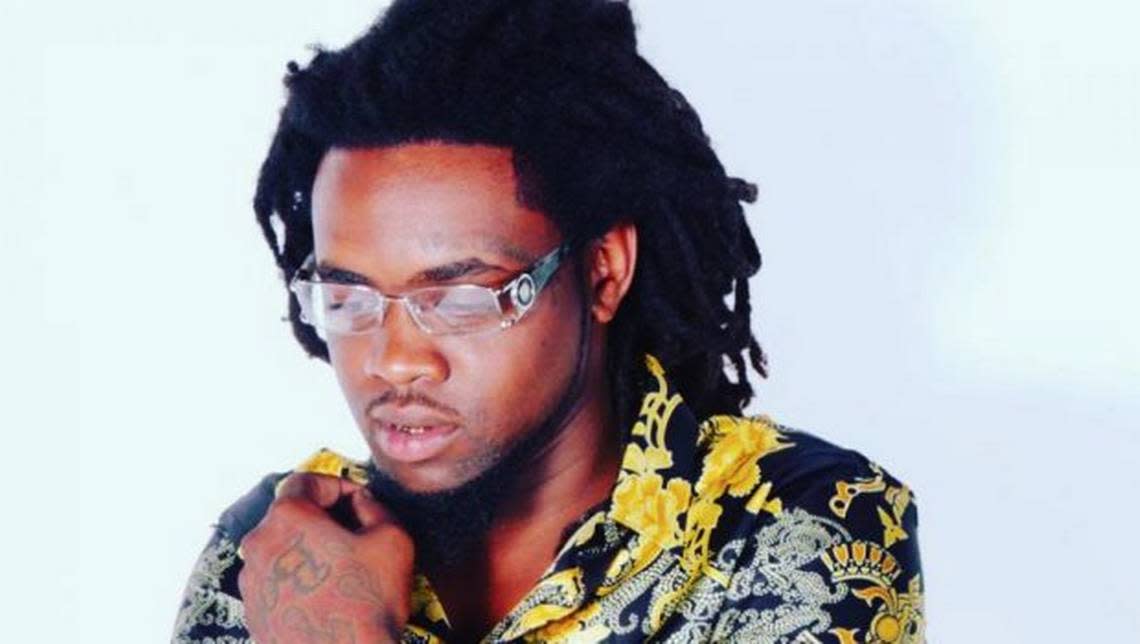Miami-area rapper ‘Money Rod’ faces prison time after pleading guilty to pandemic loan fraud

Hip-hop artist “Money Rod” called his North Miami Beach company Dreams Come True Records.
But Rodney McClain — his official name — is not exactly living the dream. The music producer may be headed to prison.
On Tuesday, McClain, 35, pleaded guilty to a wire-fraud charge involving fleecing a COVID-19 pandemic loan program. He faces as much as 20 years in prison, and though he’s not likely to get that kind of prison time based on the outcome of hundreds of similar prosecutions in South Florida, incarceration seems likely. His sentencing is scheduled for Aug. 29 before U.S. District Judge Kathleen Williams in Miami federal court.
McClain, who is based in the Atlanta area, admitted that he submitted “false” information about the number of employees, payroll expenses, revenue and taxes for his music business in his application for a Paycheck Protection Program loan, according to court records. As a result, in May 2020 the hip-hop artist received a PPP loan for $600,157 — the basis of his fraud offense, according to court records. He illegally spent more than $100,000 of the proceeds on himself instead of his production company’s overhead, authorities said.
His defense attorney, Paul Petruzzi, said authorities have “clawed back nearly all of the money” that McClain received from his PPP loan and plan to collect the rest through forfeiture.
McClain, who was arrested in March and remains free on bond, grew up in the North Miami area and initially gained notice for underground solo recordings and then commercial releases, including his single “No Help” in 2023. He also produces other rappers.
McClain’s loan was guaranteed by the Small Business Administration as part of the emergency CARES Act passed by Congress after the coronavirus swept the country in March 2020. Congress authorized $800 billion in loans through private banks to help companies across the country. The loans under this and other pandemic programs were forgiven by the SBA as long as they were used for legitimate purposes, such as employee wages, leases and utility costs.
McClain spent $113,413 of the fraudulently obtained PPP loan proceeds on himself for “impermissible expenses” rather than on any employees, as required under the SBA program, according to prosecutor Emily Stone with the U.S. Attorney’s Office and agents with the Internal Revenue Service. But authorities don’t say in the court records whether the rapper spent the money on luxury cars, jewelry or travel, as so many others convicted of PPP loan fraud did during the pandemic.
Authorities are seeking to recover the money McClain spent on himself as part of his upcoming judgment, according to court records.
McClain’s offense was commonplace during the COVID-19 pandemic in South Florida, recognized as the nation’s capital of fraud for ID theft, healthcare and other financial schemes.
A week ago, a Broward Sheriff’s Office deputy who had served on the SWAT team was found guilty of defrauding the government’s loan program that helped businesses during the pandemic. Alexandra Acosta, a 10-year BSO veteran, was convicted of using a real estate company with help from a tax preparer to obtain a $20,180 loan from the Paycheck Protection Program in 2021. Prosecutors said she falsified income, tax and other records to qualify for the SBA-guaranteed loan.
Acosta was the last of 17 BSO deputies — all arrested last fall on PPP and other loan fraud charges — to go to trial or cut a plea deal. Acosta, 38, now faces prison time, like one other BSO employee who was recently imprisoned.
Although the amount of lost loan money, about $500,000 in total, was relatively modest compared to dozens of other COVID-19 relief fraud cases in South Florida, the sheer number of law enforcement officers charged with breaking the law in one police agency stood out as shocking, authorities said.
In South Florida, about 200 people have been charged with defrauding the PPP program, submitting hundreds of millions of dollars in applications deemed bogus by federal prosecutors. Almost all have been convicted, including Carillon Hotel developer Eric Sheppard, who was sentenced to one and a half years in prison on Friday.
Among others convicted: a businessman using PPP money to buy a $318,000 Lamborghini; a nurse who lied about his business to get $474,000 that was used in part to pay a Mercedes-Benz lease and child support; and a North Miami suburban couple who claimed to be farmers to qualify for $1 million in relief benefits.


